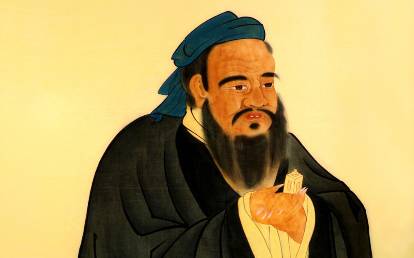Confucius: The Philosopher Who Shaped East Asian Thought
Introduction
Confucius, known as Kong Fuzi or Kongzi in Mandarin, was a Chinese philosopher and educator whose ideas have profoundly influenced Chinese culture and other East Asian societies. Born in 551 BCE in the state of Lu (modern-day Shandong Province), Confucius lived during a time of social upheaval and political fragmentation known as the Spring and Autumn period. His teachings focus on morality, social relationships, justice, and sincerity, laying the groundwork for Confucianism.
Philosophical Foundations
Confucianism emphasizes the importance of individual moral virtues and the cultivation of a harmonious society. The core concepts include:
1. Ren (ä»): Often translated as "benevolence" or "humaneness," ren represents the ideal moral disposition toward others, encouraging kindness, empathy, and compassion.
2. Li (礼): Refers to rituals, manners, and the proper way of conducting oneself in society. Li fosters social order and respect through a system of etiquette and customs.
3. Xiao (å): Filial piety, or respect for one's parents and ancestors. Xiao is critical for maintaining family cohesion and honoring one's heritage.
4. Zhengming (æ£å): The idea that names and titles must align with the realities they represent. Proper naming promotes clarity and correctness in social relations and governance.
5. Junzi (å›å): The concept of the "noble person" or gentleman, embodying the virtues of moral integrity, wisdom, and propriety, serving as a role model for others.
Education and Influence
Confucius was an advocate for education, believing it could reform society. He established a school that welcomed students from various backgrounds and focused on moral and ethical education rather than elite status. His teachings were compiled by his disciples in a text called the "Analects" (Lunyu), which continues to be a central resource for understanding Confucian philosophy.
Throughout history, Confucianism became the official state philosophy during the Han dynasty (206 BCE - 220 CE). It underpinned governmental policy and social structure, influencing civil service examinations and shaping bureaucratic practices.
Legacy
Confucius's teachings laid the foundation for various cultural, political, and educational practices in China and beyond. His emphasis on moral character and ethical governance remains relevant today. During the Tang and Song dynasties, Confucian thought experienced a revival and integration with Buddhism and Daoism, leading to the development of Neo-Confucianism.
Modern interpretations of Confucian principles continue to influence contemporary East Asian societies, including healthcare, family dynamics, and educational philosophies. Confucius's ideas have also attracted global interest, leading to scholarship that examines their application in modern governance and ethics.
Conclusion
Confucius's enduring influence stems from his exploration of ethics and human relations. His vision of a harmonious society achieved through personal virtue and moral integrity remains a cornerstone of East Asian philosophy and culture, emphasizing the importance of respect, education, and responsibility in both personal and public life.




No comments yet
Be the first to share your thoughts!